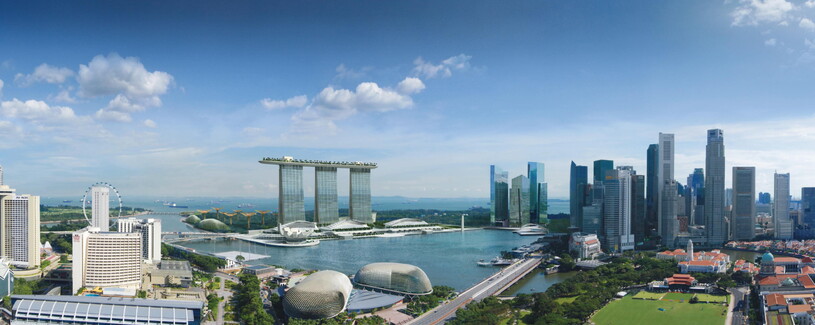Challenges of Sustainable Market Transformation in the Asia-Pacific Area
Insights from an internship at WWF Asia-Pacific Growth Strategy

Sustainability is a matter of economic survival for business, especially in the Asia-Pacific area, which has experienced amazing economic growth while continuing to be criticized for its corporate social responsibility performance. The urgency of realizing sustainable market transformation in the Asia-Pacific area has risen to a historical point. Rather than waiting for the water to become hot enough to let the frog boil, we need to get ready to ally with corporations to wage a war for sustainability.
My initiative to effectively encourage Asian Brands to lead the mainstream of CSR (Corporate Social Responsibility) and sustainability brought me to intern at WWF APGS (Asia-Pacific Growth Strategy) last summer in Singapore, a country which as the economic pioneer has led business trends in Asia.
Through the 2.5-month internship training, I got a better sense of the industrial structures, barriers and strategies to realize sustainable market transformation in Singapore in order to reduce the overall impact of deforestation, water/energy consumption, over-fishing, illegal wildlife trade and biodiversity loss in the Asia-Pacific area.
Without any doubts, the biggest industry in Singapore is the Wholesale & Retail Trade industry contributing 68.2 billion SGD to national GDP in 2014. Singapore has continually attracted a huge amount of overseas tourists mainly from Indonesia, China, Malaysia, Australia, India and Japan every year. The purchasing power of tourists contributes significantly to the Singaporean economy.
However, this economic activity comes with environmental risks. Retailers face potential sustainability challenges across the value chain, from sourcing of product ingredients and components, to packaging materials, and energy and water use to maintain operations in their department stores.
Environmental impacts coming from industrial behavior are significant and should not be ignored. The challenge is immediate. So, as corporations, how can they balance well their economic growth with environmental and social responsibilities? WWF’s initial objectives for partnership are to improve the sustainability of the supply chain while educating consumers on sustainable product alternatives through certifications like MSC (Marine Stewardship Council) which reduces bycatch and impacts on other species, ASC (Aquaculture Stewardship Council) which ensures fish farms minimize negative impacts on water quality and aquatic ecosystem; FSC (Forest Stewardship Council) whereby certified products must develop conservation plans for endangered species within the forests they manage; and RSPO (Roundtable on Sustainable Palm Oil) whereby certified palm oil must not replace primary forests or areas of high conservation value. Through B2B partnership with corporations, WWF can effectively push the market to transform into a more sustainable way starting from the middle of the supply chain and applying pressure both from suppliers and consumers.
Through my research on 13 business sectors in retail industry, I see that the opportunities for NGOs to partner with local Singaporean businesses are promising, since the Singaporean government is still regulating its sustainability policy and provides subsidies for local businesses, encouraging them to develop the circular economy and to participate in more CSR activity.
At the same time, it is exciting to see that international investors are increasingly embedding ESG practices across their portfolios through green alpha. Leading global banks disclose an ESG (Environmental, Social and Governance) framework covering their client and credit assessment processes and including sector policies for forest risk commodity sectors. And there are opportunities for consumers to become more involved through their smart phones. The innovation of technology could change the future of international non-governmental organizations (INGOs) by building an internet based INGO fund raising/market transformation model using big data. Whether it comes from emotional or commercial appeals, I see a dynamic and bright future for sustainable markets in Asia, in large part thanks to the ongoing efforts of WWF.
Special thanks to my advisors Marianne Tan, Jennifer Rogan, Trin Custodio and Laura Weeks who helped build and inspire me through their mentorship last summer.